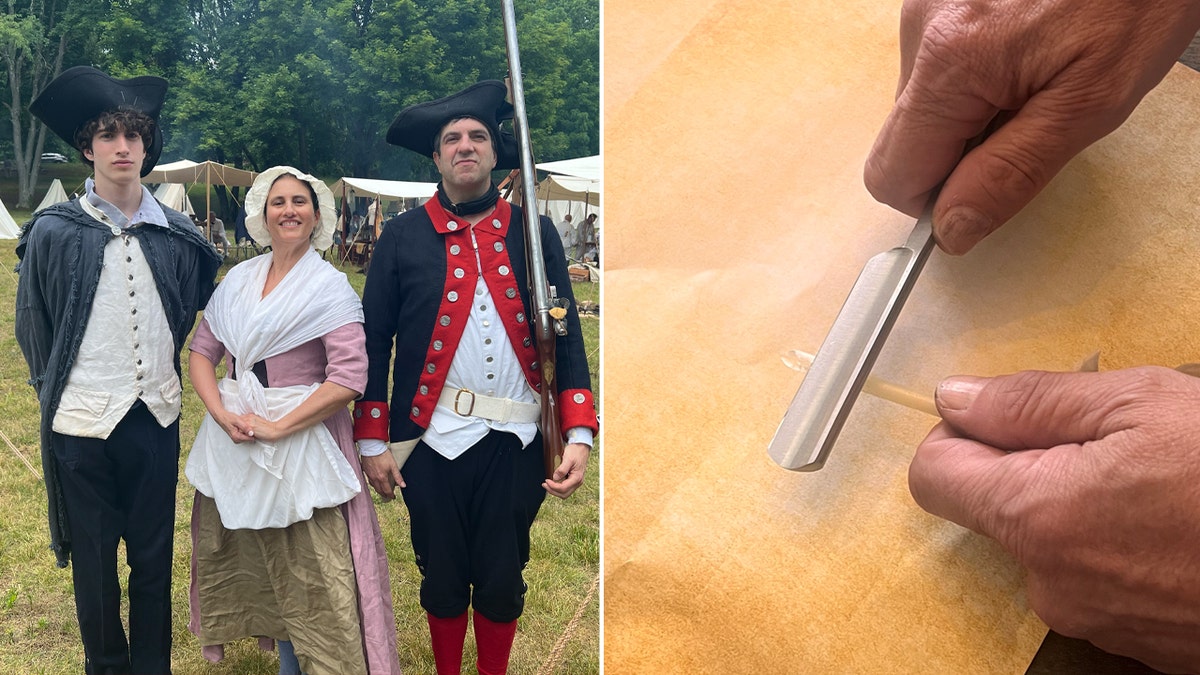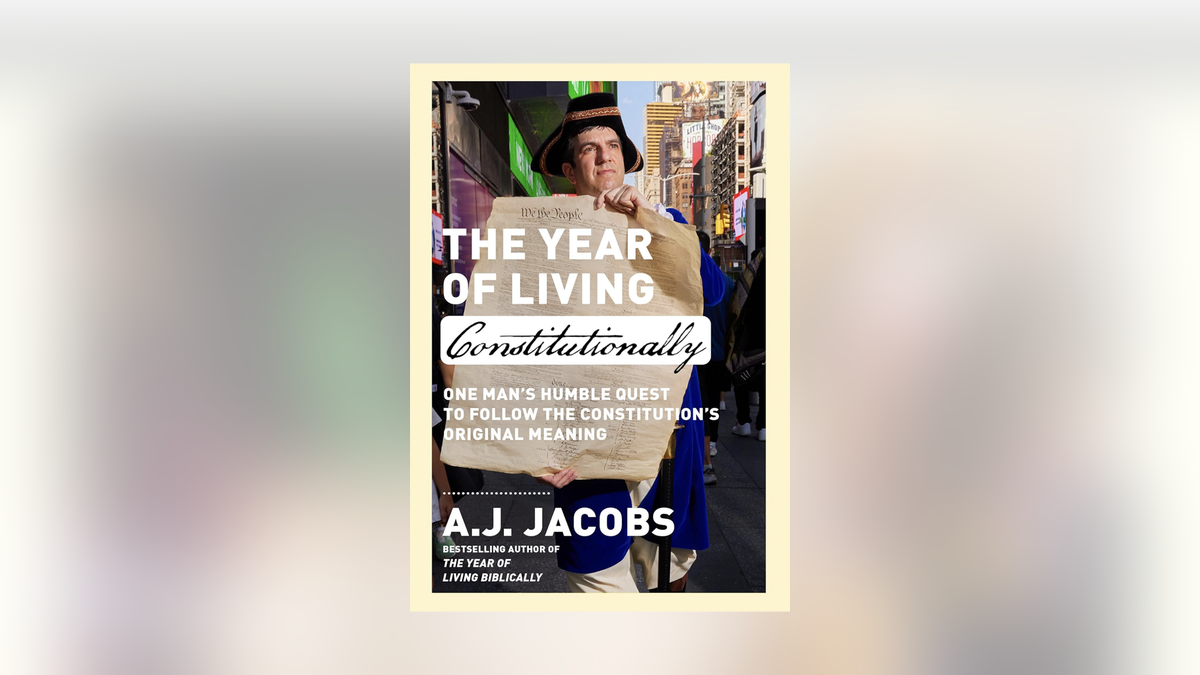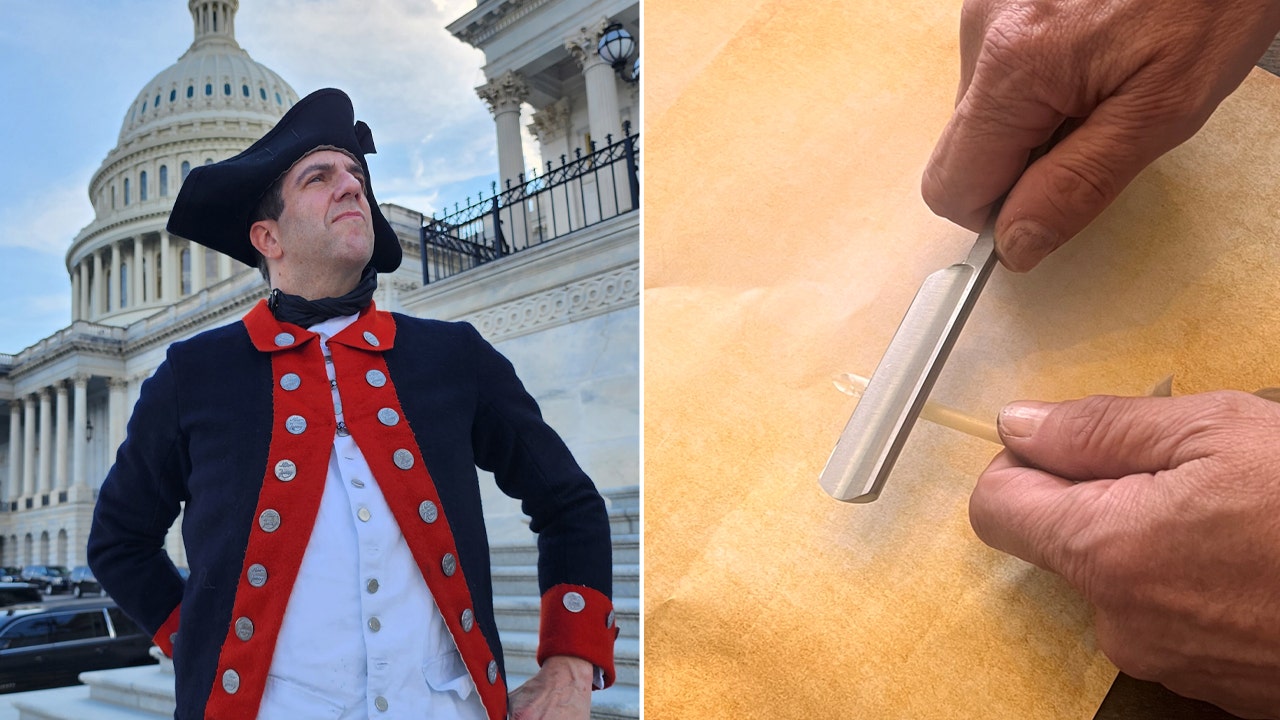In my new book, “The Year of Living Constitutionally,” I talk about lessons from the Founding Fathers — and in this piece I want to talk about the importance of getting your hands dirty. (See the video at the top of this article.)
While writing and researching my book, I got my hands dirty.
Literally.
IN AN ELECTION YEAR, AMERICANS NEED FEWER HOT TAKES AND MORE COOL-HEADED REASONING
For starters, since I wrote the book with a quill pen, I got black ink all over my fingers.
I was a literal ink-stained wretch, as I mentioned in a previous piece in this Constitution series.
But I also got my hands dirty because I was trying to live as folks did in the Founding era, and that meant a lot of do-it-yourself work with my hands.
I carved my quill pens with a straight razor blade.
I whittled my own walking stick from a large branch.
Crafting your own objects connects you with those objects in a concrete way.
I mixed my own ink from powder made of abandoned wasp nests.
I sewed some of my own clothes.
WHY AMERICANS NEED MORE FACE-TO-FACE CIVIL DISCUSSIONS ‘WITH FOLKS OUTSIDE THEIR OWN BUBBLE’
I baked my own bread from scratch.
This experience drove home that making stuff by hand is a great American value.
Crafting your own objects connects you with those objects in a concrete way.

It makes you appreciate and treasure those objects in a way that you don’t if you buy them from a big box store or get them dropped onto your porch or front step by an online retailer.
In social psychology, there’s a phenomenon known as The Ikea Effect. Studies have shown that people value objects more when they have built those objects themselves.
The phenomenon is named after the Swedish furniture store because customers often have to put together the tables themselves.
NEW YORK CITY MAN ‘LIVED’ THE CONSTITUTION FOR A YEAR. HERE ARE 7 THINGS HE LEARNED
The professor-turned-motorcycle-mechanic Matthew B. Crawford talks about this issue in his book “Shop Class as Soulcraft: An Inquiry into the Value of Work.”
There’s been a “shift in our relationship with stuff” … we’ve become “more passive and more dependent.”
He argues there’s been a “shift in our relationship with stuff” and that we’ve become “more passive and more dependent.”
And this, he says, is troubling.
Just consider the idea of repairing. It’s becoming a lost art.
We often toss out objects instead of trying to repair them.
To push back against this trend, there’s a burgeoning “right to repair” movement that says manufacturers need to make devices we can actually fix with our hands.
I’m partial to this movement.
For more Lifestyle articles, visit www.foxnews.com/lifestyle
Making stuff by hand also taps into the great tradition of American individualism.
When you buy a product, you are buying the same product as millions of others are buying.

Much of modern advertising boils down to the hilariously paradoxical message, “Express your individuality! Buy our mass-produced product!”
But for true individuality, try doing it yourself. You will produce something unlike any other object, if only because it’s imperfect.
The pride you get from making your own stuff more than makes up for getting your hands dirty.
Handmade gloves will never be as symmetrical as store-bought ones.
But that’s a good thing.
In Japanese culture, there’s a notion of “Wabi-Sabi,” which celebrates the small flaws in handmade objects, like the lumpy surface of a handmade bowl.
While researching and writing my book, I rediscovered the joy of craftsmanship (even though I’m far from naturally handy).
I found the pride you get from making your own stuff more than makes up for getting your hands dirty.
“The Year of Living Constitutionally: One Man’s Humble Quest to Follow the Constitution’s Original Meaning” by A.J. Jacobs (2024) is published by Crown.
Read the full article here





